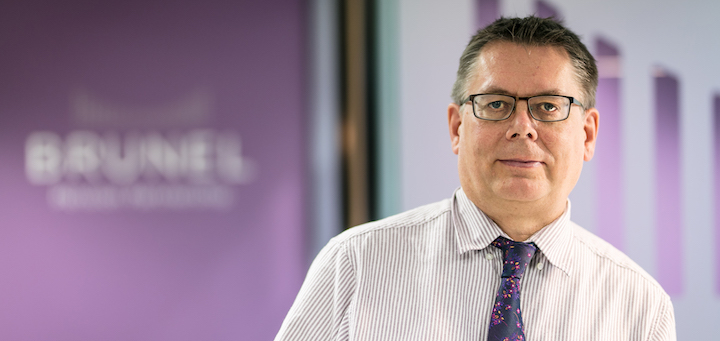
Mark Mansley, chief investment officer with Brunel Pension Partnership, talks to Room151 about building a long-term investment culture and the challenges of establishing a client-owned investment business.
Room151: Building a long-term investment culture can’t be easy when you’re constrained by three-yearly valuations. And the valuations themselves are problematic because different funds use different calculations. Is that a hindrance to long-term planning?
Mark Mansley: The issue that concerns me is how the various actuaries operate and how the interaction between actuarial assessments and investment risk works. To some extent, that involves understanding the dark art of the actuary and the assumptions they make. They all have their different methodologies, and these will all have different implications for risk. For instance, how closely correlated you are to index-linked gilt rates.
But that’s the reality of the world in which we invest. We know essentially that bond yields/gilt yields are going to be a major determinant of valuations. Our job is to steer clients through those valuation cycles, develop a positive trend, to deliver savings, and, ultimately, to help reduce contributions.
Room151: Is there anything about being a pool, which lends itself to a more long-term view?
MM: The big advantage is that we have central and focused resources and so we’re able to take a much more holistic view of investment. In general, LGPFs take a long-term view, but are very constrained by the lack of resources. We have the resource to develop a greater understanding of long-term risk, for instance. We can do more work on fees and cost bases and look at how long-term incentives for our managers might work better.
And, of course, we are now an FCA-regulated entity and, combined with the long-term culture that comes from our history as asset owners, that gives us the opportunity, compared to the average investment manager, of really thinking in 10 to 20-year timeframes.
Room151: You’re genuinely able to do that? Even with the politics that surrounds the LGPS?
MM: That is always there but what we are trying to do, as far as the client and the local issues are concerned, is focus on being a professional organisation and on understanding our clients’ needs. We’ve got a very professional board that has over 100 years of investment experience and that’s the context we see ourselves in. I don’t think the fundamental objectives are particularly political; we want to make the best investment returns for the clients in the context of the risks they face.

Crypto
Room151: And as a very long-term investor are you starting to take a different view of the investment world in terms of the type of investments you will look at?
MM: To an extent, yes. I think there are certain things like infrastructure that we’re now able to look more closely at. Notwithstanding the pressure [to invest in infrastructure], the genuine reality is that it does have a good fit with pension liabilities. If we find the right sort of [infrastructure] assets for the right kind of prices, then that’s great and part of our advantage in that market is that we are a patient long-term investor; we are not looking to buy, repackage and sell on again in three years’ time. We can talk to the other stakeholders, genuinely, as somebody who would want to be holding an asset to maturity.
And then at the other extreme, there are the shorter-term trading opportunities, which just don’t fit with out approach. The topic of the day is Bitcoin, for example. A fantastic investment if you’ve got it right, appalling if you’ve got it wrong. But it’s just not the sort of game that we are going to be playing.
Room151: Are there ethical considerations for you around cryptocurrencies insofar as how they came about and what they have been used to buy?
MM: There are some interesting aspects of Blockchain technology which can be used very positively but yes, there are other questions about how it has actually been used. The comment I can make is that, thinking as an authorised firm, I do find it slightly unusual that while we are faced with numerous challenges in adhering to anti-money laundering regulations, you see some business leaders getting very excited about Bitcoin. That’s a dichotomy I find challenging.
Room151: What about things like fossil fuels, so called stranded assets? Does that shape your long-term thinking?
MM: There is no question that we regard climate change as a long-term risk and we think that companies generally should be adapting to it. What we will be doing is ensuring that our managers take account of that risk — that doesn’t necessarily mean that they are excluding organisations, it just means that when they assess a company that has material exposure to climate and carbon risk that needs to be reflected in the price. Generally speaking, that will make them slightly more cautious about such assets and it also means that we are very keen to use our governance and stewardship to engage with companies.
Allocations
Room151: I want to come on to asset allocation, but firstly what is the plan for running money externally and internally?
MM: We don’t run any money in-house. In the short-term we have more than enough to do, but it’s something we may look at in the medium term.
Room151: The medium term?
MM: Well, I think that it will probably be three to five years, but we are already looking at managed accounts and funds of funds in the private markets as something we can bring in-house, to remove one layer, as it were.
Room151: Regarding asset allocation, have you wound up in a situation where the tail is wagging the dog? You will be FCA regulated to manage LGPS assets as best as you possibly can but, arguably, 80% of the returns will come from the decisions made by the administering authorities.
MM: It’s always very easy to say that the asset allocation drives [performance], but they are the decisions that you perhaps make with the greatest levels of uncertainty.
We are trying to strike a balance and I guess there are various aspects to this. Firstly, Brunel is set up with a structure of about 24 portfolios, or separate investment ideas. We have done that to provide a reasonable level of consolidation, but at the same time to give our clients more choice about how they pick their assets, rather than just thinking in terms of bonds, equities and alternatives, or something similar.
It’s a little bit of a compromise and we will see how that will evolve over time. There is an ability to create new portfolios if clients want them, but we think we need to be restrained about this and not start going for everything.
We also hope that as things become a little bit more established, clients will be more interactive with us on strategic matters and we will be getting involved with those conversations.
Also, we’re working with some of the investment consultants to make sure they understand some of the remits and parameters we work under so that they are not trying to over-push their latest bright idea, but to recognise that it’s got to fit into the Brunel model, as well as being demonstrably good for the client.
Room151: Do you think there’s still a role for the LGPS consultant in manager selection?
MM: For us, the manager selection is clearly devolved to Brunel, so the investment consultants at the fund level should not be getting involved in manager selection.
We may use some consultants to assist us with manager selection, partly because we have a large agenda to get through and partly because we may be going into particularly technical areas where the consultant’s area of expertise is worth bringing to the table. There could be specific things that we, as a pool, will be looking to them for: maybe operational due diligence, maybe preparing a high-level short list of quality managers, maybe a particular market that we haven’t had time to research as much as we would like to ourselves.
Talent pool
Room151: Since a lot of LGPS talent is migrating to the pools, do you see a management challenge emerging for the administering authorities?
MM: We are aiming to provide a lot of practical support. Also, as a professional entity, we are geared up to provide investment advice, or will be once we’re fully authorised. Certainly, our hope and expectation is that we will be able to be actively involved with, and supportive of, the local funds.
We think clients will probably want to give us a chance to prove ourselves before they start completely relying on us, which is understandable. But if, for example, they need us to write their investment papers for their investment committee, then we will be able to do that.
Room151: Are there issues with pools as well for attracting and retaining talent do you think?
MM: We have done a lot of work on the organisational culture and the recruitment and we are trying to make it an attractive place to work.
We recognise the balance between the additional responsibilities and demands on the staff of being at a regulated entity and the salaries modestly need to reflect that, but at the same time we are not paying the London prices.
So far we’ve been able to attract great talent and we’re really trying to engender a culture that is supportive over the long term of people’s ambitions to retain those staff. And we’re able to offer staff an LGPS pension which encourages them to feel that they are part of the entity they are working for.
Room151: No bonuses for the investment staff if they outperform the market?
MM: No. The trouble with defining bonus structures is that they invariably lead to quite short-term bonus orientated performance and, actually, if we were to have a bonus structure, it would need to be long-term and then that wouldn’t necessarily work out well for the individuals. Clients were insistent that we avoided short-term performance related pay and we believe the FCA quite likes that approach too.
Room151: From the outside it looks as though the Brunel project is going well. How important is it for you that pooling more widely is a success?
MM: I think that is undoubtedly something we would like to see. It’s not a competition, it’s not a race, we very much want to see pooling in general succeed and what we don’t want to see is another set of ideas from the government on how the LGPS should be run. We are making a lot of progress and I think it’s a pretty good model.
But the size of assets we have is sensible, the fact that we are able to bring a lot more focused resources to bear on the assets means that we should be able to improve investment performance, and there is still a healthy degree of local accountability and control.
Hopefully it will succeed and I think we are certainly doing what we can through the pool groups and other interactions to support each other’s pools and hopefully we will all prosper.
Mark Mansley is chief investment officer at Brunel Pensions Partnership.











